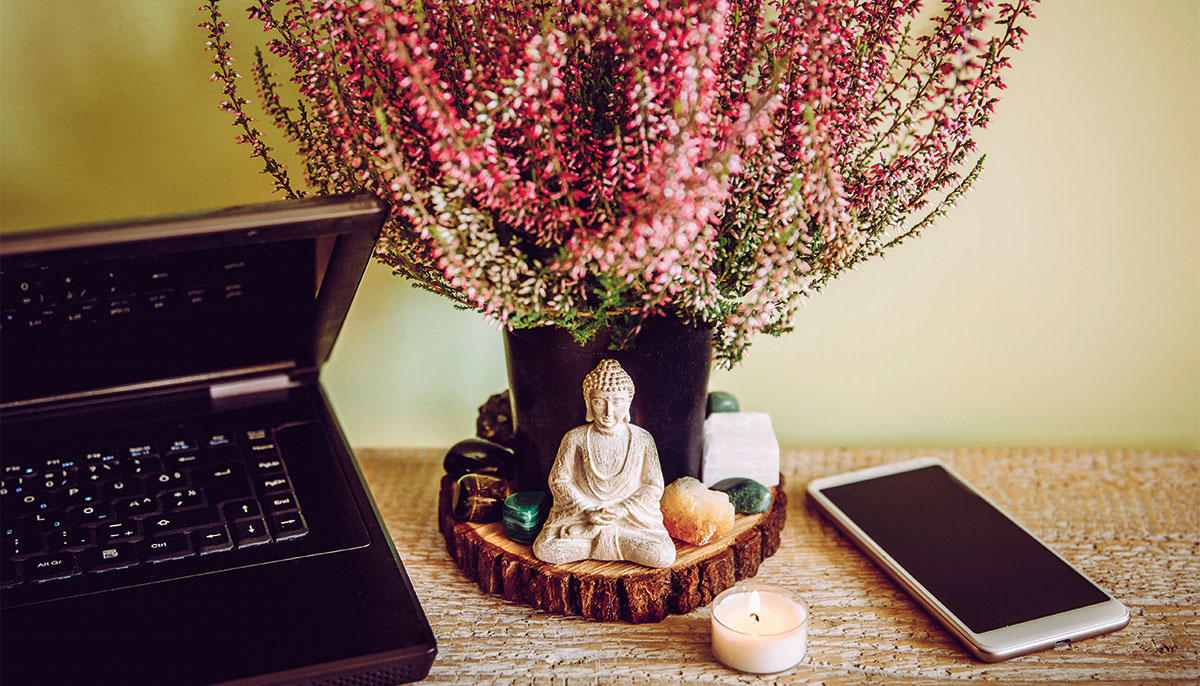I wanted to deepen my practice. So, when I was accepted into a graduate program for Buddhist chaplaincy, I couldn’t wait. I was going to what I affectionately called “Buddhism School.”
Since I swore to pay for Buddhism School without student loans, I worked full-time while taking classes. Even though I’d been practicing and studying Buddhism for years, academic study was far from the laid-back, gentle approach I was accustomed to at meditation centers.
I was unprepared to deal with all the reading, writing, midterms and finals, PowerPoint presentations, and analysis of difficult Buddhist texts. Plus, in rush hour, my commute was sometimes two hours! Studying “all things Buddhism” was quickly becoming “all things pain-in-the-butt.”
At work, I maneuvered office politics and possible layoffs. My job also required a lot of reading, writing, meetings, and dealing with difficult coworkers. As a creative writer, I kept submitting stories that got rejected. My downtime was sleeping in my car between work and class.
I became one of those people who didn’t have time to practice. Or worse, I didn’t want to practice; I loathed practicing. “Geez,” I thought, “I’m studying Buddhism, that’s practice enough!” The idea of doing more meditation, more reflection, more study in my own time was unbearable.
But I did it anyway. I needed my practice to get me through school, work, rejections—life! Practice is complex: it’s beautiful and infuriating, simple yet hard. It’s a marriage I refused to give up on. Maybe I needed time apart, maybe my relationship needed adjustments, but it was not a relationship I wanted to end. Thus, I learned an important element of practice: endurance, or right effort.
This issue is dedicated to practice in its many forms. Arisika Razak gently reminds me to wish myself and others happiness and protection from harm. Breathing this in and out is a salve for today’s woes. Even in Buddhism School, there was tension with some classmates, and loving-kindness meditation helped to ease it.
Ryuei Michael McCormick’s teaching is a testament to the power of chant. One of my favorite memories is of chanting with monastics. It’s powerful to chant Buddhist texts out loud, especially in an Asian language spoken by our Buddhist ancestors for generations. Chanting in group, I sense that, ultimately, we all want the same thing: to learn and to better ourselves, so we can serve others.
Finally, if you feel you’re doing too much, Rebecca Li reminds us that using no-method might be the perfect method of practice. When I graduated, exhausted yet fulfilled, I often sat, relaxed, in silence. I did not have a fixed object of meditation, but rather I was present with everything, just as it was—my body, mind, and environment.
I’ve come to see that, as long as you bring your awareness to bear, anything you do can be practice. Maybe reading this magazine is all the practice you need today!
This article is from the March 2024 issue of Lion’s Roar magazine.

